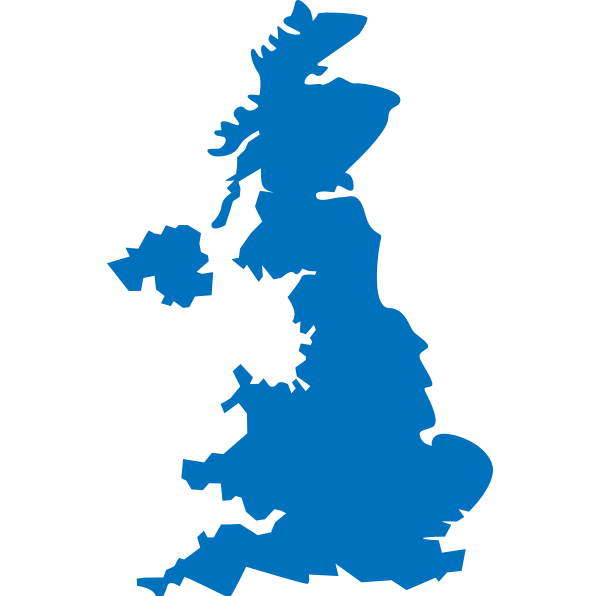What Is A Trustee Of A Will?
Posted on 14th July 2020
When our expert team of local solicitors for Wills are drafting Wills, quite often we would suggest appointing Executors and Trustees. Normally, people will appoint the same people in both roles, but what is the difference between the roles?
Well, the role of any Executors is to deal with the administration of an Estate, including the application for a Grant of Representation, also known as Probate, settling any bank accounts, selling or transferring any property, paying any liabilities, and settling any other debts or testamentary expenses. Trustees do not need to have anything to do with the administration of the Estate, instead acting only if there are ongoing Trusts which need to be managed, arising from the Will.
Now that our expert Wills, Trusts, Tax and Probate Solicitors have explained the main difference between the two roles, we will explain why you may wish to appoint Trustees under your Will.
Fixed-fee Wills and Probate Solicitors:
MG Legal's leading Wills and Probate Solicitors in Preston offer all of our private client services on a clear, fixed-fee rate.
Our team put your first, and work with care to ensure that your wishes are met. Call us today on a free, no-obligation basis at: 01772 783314

Get in touch today to speak to a Wills and Probate Solicitor.
Do I need to appoint Trustees in my Will?
In around 99% of the Wills that our team of Wills, Trusts, Tax and Probate Solicitors draft, we will appoint named people to be the Executors and the Trustees at the same time.
The Trustees would be able to act, for example, if any of the Beneficiaries are under the age of 18 when they are due to inherit their share of an Estate. In cases such as these, the Trustees will be responsible for taking care of the minor’s inheritance until they are the right age.
In other cases, Trustees may need to manage a Trust that has been established under the terms of the Will.
You may never need a Trustee to deal with part of your Estate after you have died; you can discuss this with our expert team of Wills Solicitors before confirming your Will instructions.
What is the role of an Executor?
When you make a Will, our local solicitors for Wills ask you to confirm who you want to appoint as your Executors. These are the people, or the person, who will be legally responsible for dealing with the administration of your Estate and carrying out the terms of your Will. You could choose to appoint more than one person and, legally, up to four people can act in the role at any one time.
Administering an Estate can be a complex role, which can carry a lot of responsibility for the person appointed, as well as, in some cases, liability. The Executor of your Estate will have to carry out most, if not all of, the following tasks:
- Notify organisations who you held assets with that you died – for example, your pension provider, your bank or person that you held shares with.
- Obtain valuations of all of your assets and liabilities.
- Submit full inheritance tax accounts, if they are required, and calculate how much inheritance tax is payable.
- Deal with payment of inheritance tax from the Estate assets, and liaise with HM Revenue and Customs about this payment.
- Make an application for a Grant of Probate, if it is required.
- Pay any liabilities or debts of the Estate, from the assets of the Estate.
- Deal with any challenges of the Will, if it is contested.
- Distribute what is left of the Estate once all liabilities have been paid, to the named beneficiaries.
The Executor may have other duties; however, these are the key ones. If you die intestate, so you have not left a Will, your Administrator of the Estate will have similar duties to an Executor. The main difference between an Executor and an Administrator will be the way that they obtain the Grant of Representation, allowing them to legally deal with the deceased’s Estate.
Once they have distributed the remainder of the Estate, the Executor should receive a receipt from each of the beneficiaries to confirm that they have received their share of the Estate. At this point, the Executor will usually be discharged from their responsibilities and duty to administer the Estate.
Why choose MG Legal:

Transparent fees.

We are the experts.

Multiple Office Locations.

Give us a call at any time.
What is the role of a Trustee?
If a Trust is established under your Will, then the named Trustees will become responsible for receiving the inheritance from the Estate on behalf of the Trust, from the Executor. Once they have received the inheritance, the Trustees will become legally responsible for managing the cash or assets either on behalf of the beneficiary or the Trust.
The terms of the Trust will normally be set out in the Will, and the Trustees should carry out their role in accordance with these specified terms.
The Trustees also owe the following duties:
- Honesty
- Integrity
- Loyalty
- Good faith
The Trustees must act fairly towards the beneficiaries and, if there is more than one, treat them equally, balancing their interests. They also have a duty of care under the Trustee Act 2000 to “exercise such care and skill as is reasonable in the circumstances”.
In addition, the Trustees will normally have different powers when it comes to dealing with the Trust. These terms are defined by law and usually will be stated within the terms of the Trust, too.
How do you choose a Trustee?
If you need to appoint a Trustee in your Will, like with an Executor, this should be a person you trust and who you feel can deal with their role and handle the responsibility. You should consider who will be the best fit for the role and who can deal with all of the duties that they will be required to undertake.
When our local solicitors for Wills are drafting a Will which contains trust provisions, we would usually suggest that you appoint at least two Trustees. This is key for two reasons: 1), if one of your named Trustees is unable or unwilling to act, there will be someone who can take their place and 2), if the Trust contains a property as an “Asset of the Trust”, there is a legal requirement for at least two Trustees to act and deal with the legal ownership of the property.
If there is only one Trustee appointed or able to act when it comes time to deal with the Trust in your Will, the remaining Trustee could choose to appoint a second Trustee to increase the number of Trustees to two. However, many people would prefer to appoint their own Trustees rather than relying on the remaining Trustee to choose.
How do I include a Trust in my Will?
Quite often, a Trust will arise in a Will without the person making the Will even realising. For example, if a minor or a person without mental capacity are named in a Will as a beneficiary, this could lead to a Trust.
In other cases, a Trust will be purposefully written into a Will, such as a Discretionary or Disabled Trust.
To ensure that your Will is correctly drafted and to prevent any issues with your Will once you have died, you should always seek legal advice when making your Will. You can contact our expert team of Wills, Trusts, Tax and Probate Solicitors to arrange an appointment online, here, or email wills@mglegal.co.uk. Our team of local solicitors for Wills have excellent five- star reviews; you can read them online, here.
Expert legal services across England and Wales:
No matter where you are located across England and Wales, MG Legal's expert Wills and Probate solicitors are here to help you to achieve the best possible outcome in your legal matter.

Free Consultation

Nationwide Services

Decades of Experience

No Win No Fee Injury Claims

Multiple Office Locations

Fully-Qualified Solicitors

Share this post:




